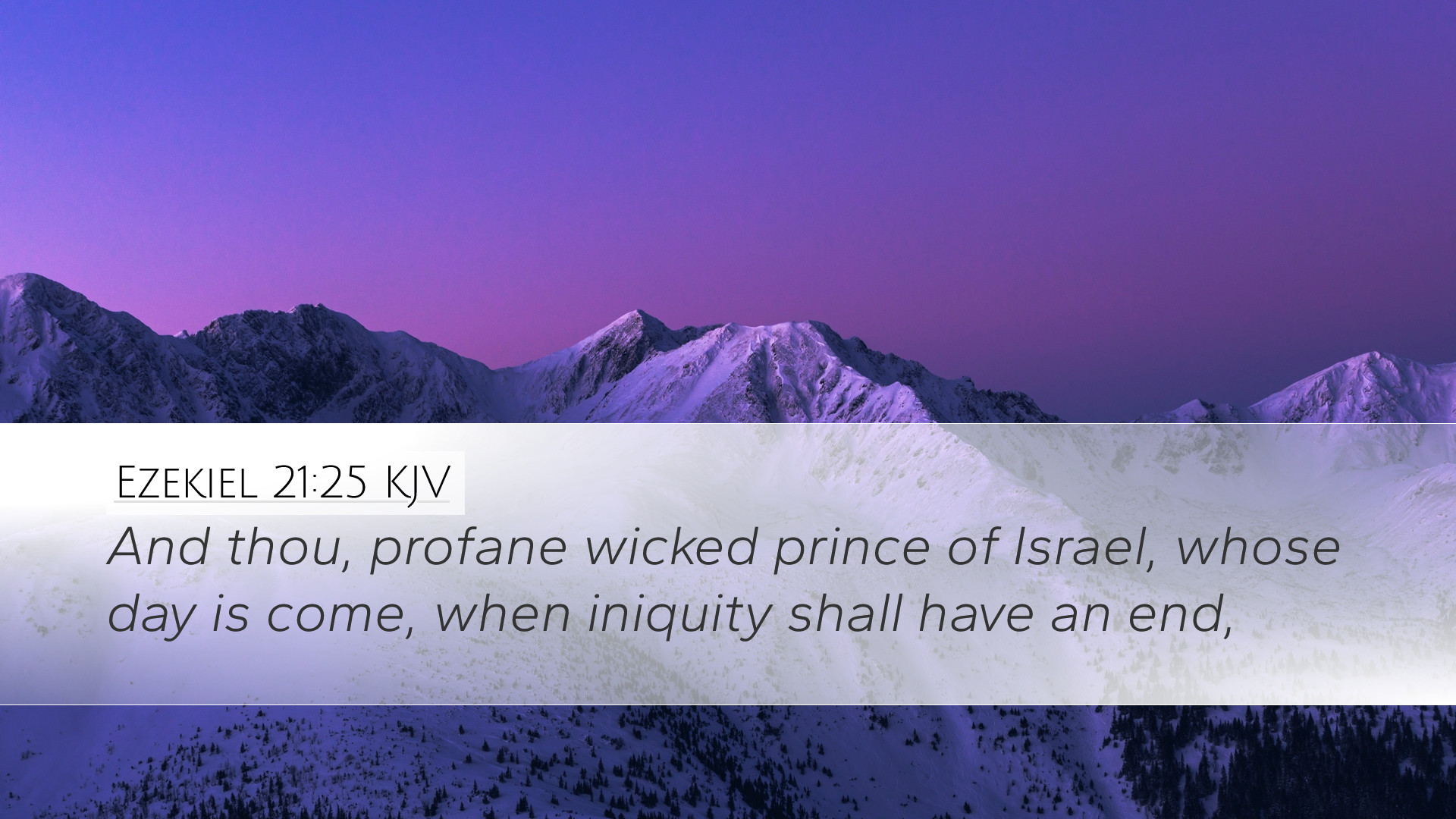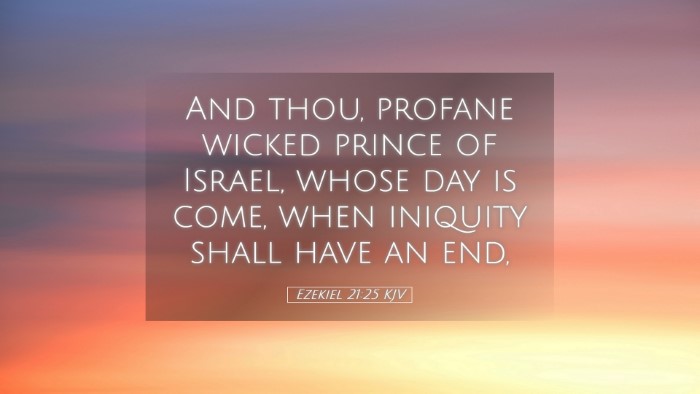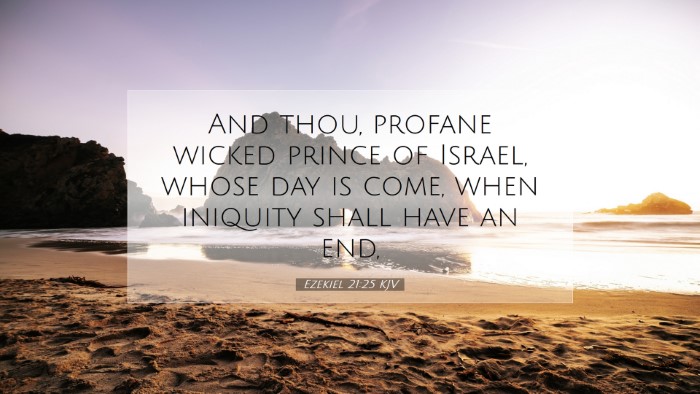Ezekiel 21:25 - A Commentary
Verse: "And thou, profane wicked prince of Israel, whose day is come, when iniquity shall have an end."
Introduction
The prophecy of Ezekiel is marked by a profound sense of impending judgement and divine justice. In Ezekiel 21:25, we are confronted with a solemn declaration aimed at the "profane wicked prince of Israel." This verse serves as a pivotal moment that reflects the overarching themes of the book: the judgement of God against sin, the end of iniquity, and the assurance of divine sovereignty. This commentary seeks to delve into the implications of this verse, drawing insights from respected public domain commentaries.
Contextual Analysis
To grasp the weight of Ezekiel 21:25, it is essential to contextualize it within the historical and prophetic framework of the book. Ezekiel proclaims God's verdict upon Jerusalem and its leaders amid the Babylonian exile. The identity of the "wicked prince" has been debated, with some interpretations aligning him with Zedekiah, the last king of Judah. Others see this character as a broader representation of corrupt leadership in Israel.
Matthew Henry's Insights
Matthew Henry comments extensively on the nature of the profane leader, identifying him as one who has not only failed in his duties but has engaged in acts that profane the covenant of God. He interprets the judgement pronounced against this prince as a necessary act of divine justice. Henry's exegesis underscores the notion that leadership carries significant responsibility; when leaders act wickedly, they lead their people into destruction. He emphasizes that this judgement signifies the culmination of God's patience and the inevitability of divine retribution.
Albert Barnes on the Critical Elements
Albert Barnes provides valuable insight into the term "profane." He defines it as a state of moral corruption that leads to the desecration of holy things. Barnes asserts that this prince represents the unfaithful rulers of Israel who have disregarded their divine mandate. His commentary highlights that the mention of "when iniquity shall have an end" offers not just a warning but a promise of restoration following judgement. It implies that God allows the suffering of His people to bring about a greater good—a purification and eventual return to righteousness.
Adam Clarke’s Theological Perspective
Adam Clarke's analysis focuses on the theological implications of the prophetic message. He notes that God's judgement is not arbitrary but a natural consequence of human actions. Clarke articulates that this verse signals a turning point for Israel, marking the end of a corrupt era. He underscores that the "day" referenced is a definitive moment in salvation history, where God initiates a process of purification. Clarke emphasizes that while the immediate context speaks to the leaders of Israel, it also offers a timeless truth about accountability in leadership that resonates throughout centuries.
Lessons for Leaders
The observations made by these commentators offer critical lessons for contemporary leaders within the church and society. Here are several key takeaways:
- The Weight of Responsibility: Leaders are held to a higher standard due to their influence over others. Ezekiel 21:25 serves as a reminder that moral integrity is paramount.
- Divine Judgment is Inevitable: Like the prince of Israel, any leader who persists in wrongdoing will eventually face consequences. This reinforces the importance of uprightness and accountability.
- Hope in Restoration: The phrase "when iniquity shall have an end" carries a message of hope. In the face of judgement, there remains the steadfast promise of God's mercy and restoration for His people.
Conclusion
Ezekiel 21:25 is a profound declaration of divine judgement against sin and corruption, specifically targeting the leaders of Israel. Through the insights provided by Matthew Henry, Albert Barnes, and Adam Clarke, we gain a deeper understanding of the significance of this verse for both its original audience and contemporary readers. It challenges leaders to reflect on their actions and encourages all to trust in God's ultimate plan for justice and restoration.


